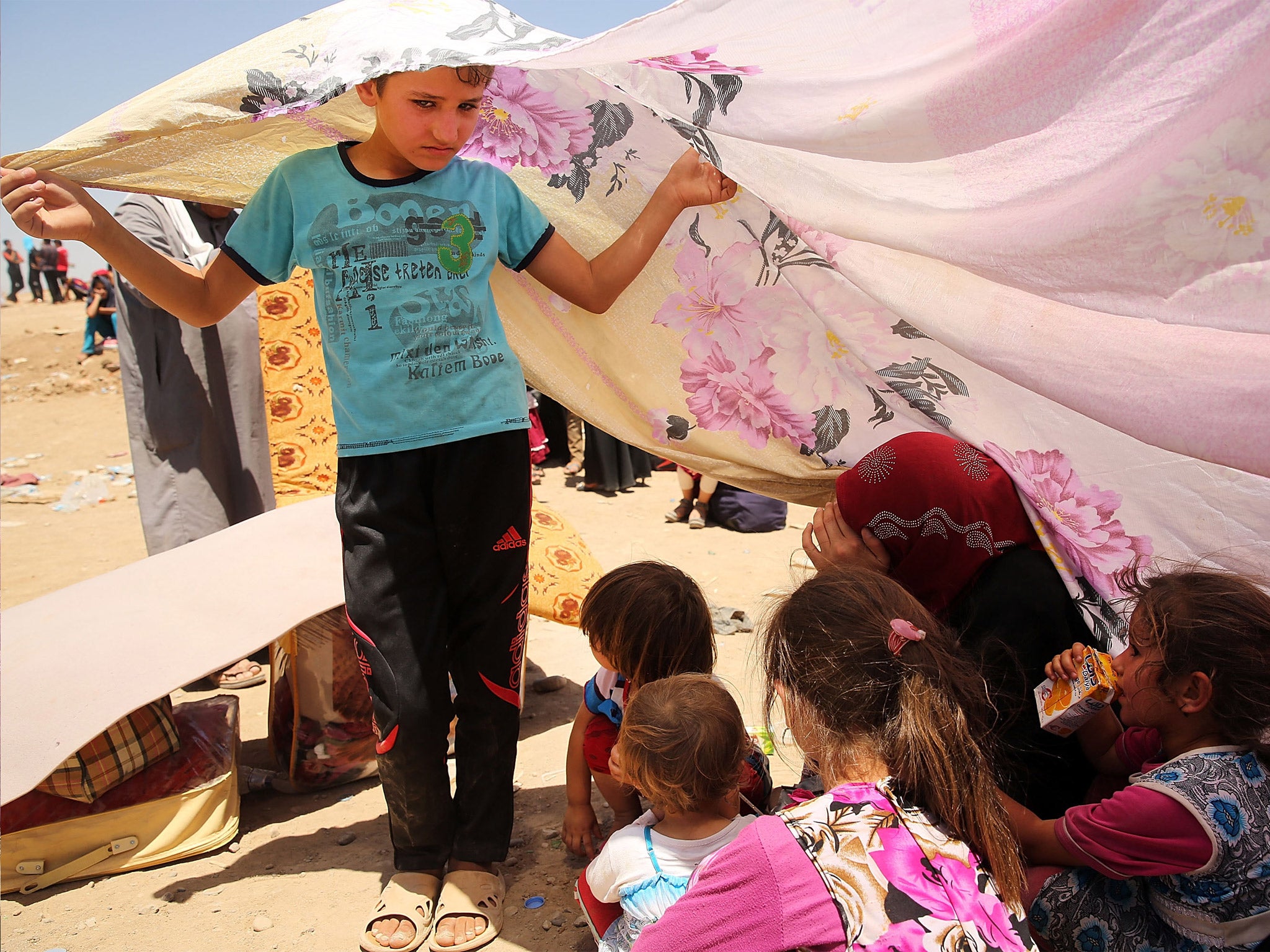Iraq crisis: Parliament in deadlock as Isis advance continues
Crisis political talks to agree new leaders end in failure after just two hours

Your support helps us to tell the story
From reproductive rights to climate change to Big Tech, The Independent is on the ground when the story is developing. Whether it's investigating the financials of Elon Musk's pro-Trump PAC or producing our latest documentary, 'The A Word', which shines a light on the American women fighting for reproductive rights, we know how important it is to parse out the facts from the messaging.
At such a critical moment in US history, we need reporters on the ground. Your donation allows us to keep sending journalists to speak to both sides of the story.
The Independent is trusted by Americans across the entire political spectrum. And unlike many other quality news outlets, we choose not to lock Americans out of our reporting and analysis with paywalls. We believe quality journalism should be available to everyone, paid for by those who can afford it.
Your support makes all the difference.The Iraqi parliament closed its inaugural session after two hours because political parties have not decided on new leaders to seek a way out of the crisis caused by the fall of Mosul and the takeover of much of northern and western Iraq last month by Isis.
The likely outcome of the first sessions of the new parliament chosen in an election on 30 April will be the replacement of Nouri al-Maliki, the Prime Minister since 2006, who has been discredited by military disasters. Many Iraqis see his image as a sectarian Shia leader hated by most of the Sunni community, as ruling out any role for him in any compromise with the Sunni.
The wrangling by the parties over who should be the new parliamentary speaker (normally a Sunni), President (a Kurd) and Prime Minister (Shia) may confirm Iraqis in their low opinions of the competence and honesty of MPs. “The parties are all corrupt and all they want to do is steal,” said Abu Ali, a Trade Ministry employee, about the new parliament. “Some of them get their orders from Saudi Arabia or Iran. The Iraqi people can go to hell for all they care.”
Few Iraqis are optimistic about their representatives or are hopeful that they can cope with the present crisis. Saleh Daoud, a small businessman, said: “People say that 70 to 75 per cent of the old faces are back in the new parliament so there is no real change. There will be the same corruption and no services for the people.”
Some of this is not quite fair since Mr Maliki did everything he could to marginalise parliament, preventing security officials appearing before it for four years as the million-strong security forces became more dysfunctional. He and his family have monopolised power and are notorious for presiding over the decay of state institutions from which money was systematically siphoned off to foreign bank accounts. Iraqis allege that many of their MPs and their families live abroad for much of the time.
The opening of a new round in the Iraqi civil war, which has never quite died away since the US invasion of 2003, is reflected in the latest casualty figures from the UN in Iraq. The figures for June for the whole of Iraq outside Anbar province show 2,417 dead, of whom 1,531 were civilians and 886 security services. A further 2,287 were wounded, of whom 1,703 were civilians.
There are further signs that Isis, which has changed its name to the Islamic State and declared a new caliphate, still has military momentum behind it in Syria as well as Iraq. Its latest success is the capture of the Syrian town of Boukamal which is on the border with Iraq. Isis is said to have brought in fighters from Iraq to overcome the last resistance of other jihadi groups which will have difficulty withstanding Isis after its victories in Iraq.
In northern Iraq, the President of the Kurdistan regional government, Masoud Barzani, moved Iraqi Kurdistan closer to declaring independence in an interview with the BBC. After listing the frustrations the Kurds had faced trying to play by the political rules within a united Iraq, he said that it was the right of the Kurdish people “to achieve its independence and from now on, we won’t hide that the goal of Kurdistan is independence”. He said a referendum would have to be held in which all the people living in Kurdish territory could vote. He did not give a date for the referendum, but said it would be within months.
The de facto Kurdish state has taken over territory disputed with Baghdad including the oil city of Kirkuk, leaving it with a 1,050-mile frontier with Isis-controlled lands. Mr Barzani said that the Kurdish Peshmerga would defend Kurdish territory but would not join a Baghdad government offensive against Isis unless there was an attempt to reach a political solution to Iraq’s divisions.
As regards international reaction to a Kurdish declaration of independence, Mr Barzani has a strong hand because his neighbours need his help against Isis.
Join our commenting forum
Join thought-provoking conversations, follow other Independent readers and see their replies
Comments